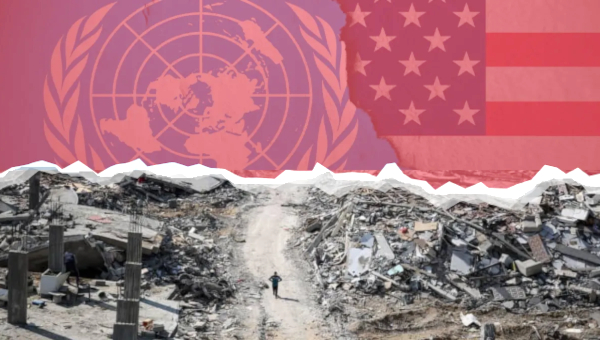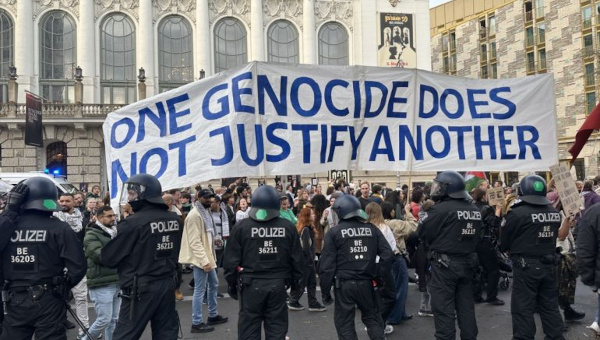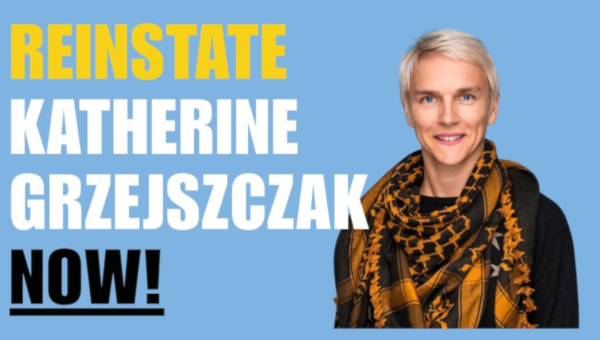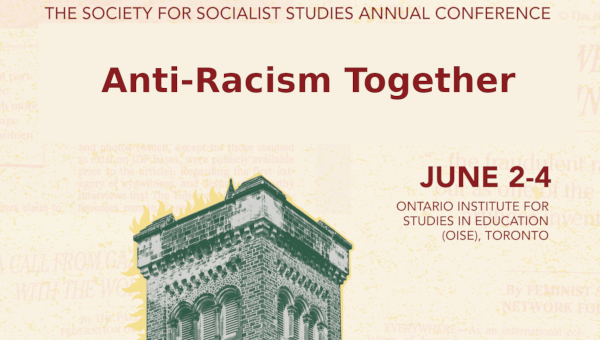“Between the rock of the occupation, and the hammer of coronavirus”
The Coronavirus and the Conditions of Palestinian Workers
“Colonialism is not a thinking machine,
nor a body endowed with reasoning faculties.
It is violence in its natural state…”— Frantz Fanon, The Wretched of the Earth (1963).
This past month Israeli soldiers dumped a Palestinian worker at a checkpoint on the border of the West Bank, shivering from fever and barely able to breathe. According to Middle East Eye, he “had been showing signs of the coronavirus over the past four days, and was recently tested for the virus. But before the man, allegedly a resident of Nablus, could receive his test results, his Israeli employer reportedly called the authorities, who picked him up and dropped him on the other side of the Beit Sira checkpoint, which connects central Israel and the occupied West Bank.” “It’s like we are slaves to them,” says a local Palestinian, “They use us when they need us, and when they are finished, they throw us away like trash.” Since the crisis began Israeli soldiers have actively obstructed the emergency response for Palestinians by shutting down multiple clinics and continuing their practice of arbitrary house demolitions.
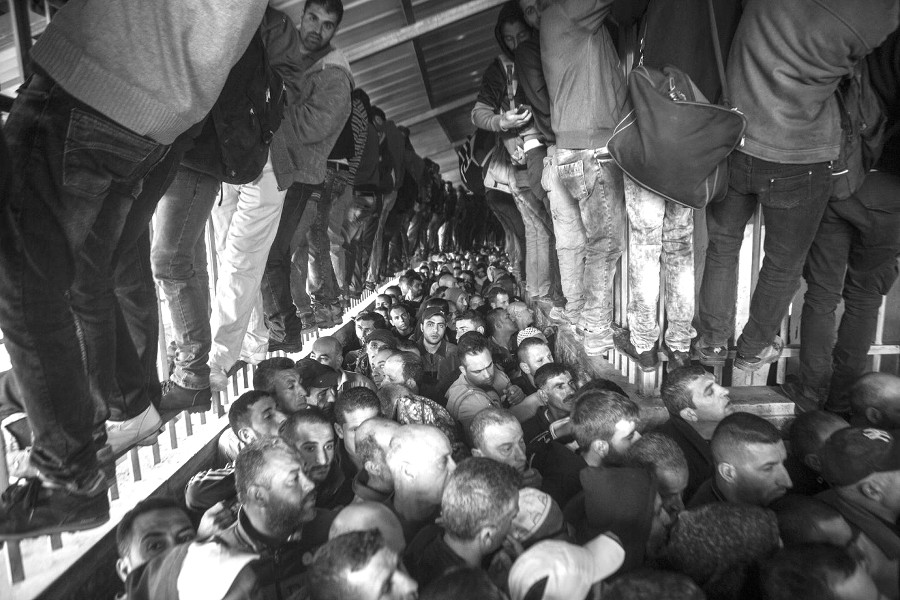
Praise for “battle-ready” Israel’s militarized response to the coronavirus pandemic has turned a blind eye to the manner in which it has also weaponized the coronavirus pandemonium against Palestinians. While Gaza has been strangled by a 13-year blockade and repeated military invasions, which renders its two million inhabitants vulnerable to pandemics, in the West Bank Palestinians struggle with a brutal occupation that seeks to deny them the most basic and necessary means to survive and care for themselves. As of April 9, 2020, the West Bank is reported to have 250 cases of the coronavirus. However, these numbers are set to increase significantly in the coming period due to the return of many Palestinian workers from Israel following Passover and for Ramadan. While people in Italy and UK take to their balconies applauding the “essential sector” workers, Palestinians who work in Israel’s “essential industries” find themselves crushed “between the rock of the occupation and the hammer of coronavirus.”1
Palestinian civil society organizations are calling for an immediate international intervention. Though the COVID crisis may be an “exceptional” moment in recent world history, the conditions to which Palestinians are subjected reminds us that the Nakba (النكبة) – the expulsion, dispossession, and dehumanization of Palestinians in 1948 – is not a fact of the past, but is ongoing. Palestinian workers bear the brunt of this violence. It is imperative that the international left recognize the exceptional setting of the pandemic confronting Palestinians, and take political actions in support of immediate relief to the medical emergency and an end to the Israeli occupation.
The Occupation and the Pandemic
Many Palestinians are denied access to basic health services by Israeli land confiscations and checkpoints. Palestinian communities in Area C, which comprises approximately 60 per cent of the West Bank, are particularly in jeopardy.2 In the area of the Naqab (Negev), for example, over 80,000 Palestinians have no access to emergency healthcare. Coronavirus cases are rapidly spreading in East Jerusalem, where Palestinians are subject to Israel’s discriminatory “residency” criteria and severe underfunding of public services.3 Palestinian hospitals in East Jerusalem only have 22 ventilators for nearly 350,000 people. Many working class and poor Palestinians’ access to health services in the West Bank has been on the decline because their public health infrastructure has been undermined by Israel’s withholding of clearance revenues to the Palestinian Authority (PA), cuts in US funding under the Trump administration, as well as austerity measures imposed on the PA by the World Bank and IMF. In the West Bank, only 256 adult ventilators are available for a population of three million Palestinians, of which 90 per cent are already in use. Spread of the virus will have catastrophic consequences for Palestinians.
Yet efforts by Palestinians to develop communal systems of support are systematically sabotaged by the Israeli occupation. In March, Palestinians involved in disinfecting public spaces and distributing aid packages in the Old City of Jerusalem were arrested. In early April, the Israeli army arrested the Palestinian Authority’s Jerusalem Affairs Minister Fadi Hidmi as he sought to assist Palestinians in Jerusalem with the COVID pandemic.4 On April 15, despite forty confirmed cases in the East Jerusalem Palestinian neighborhood of Silwan, the Israeli army raided the coronavirus testing clinic in the local mosque and arrested its organizers. Palestinian residents of Silwan have been repeatedly the target of evictions and expulsions, as have Palestinians throughout Area C. In the Jordan Valley hamlet of Khirbet Ibziq, similarly, the Israeli army is sabotaging coronavirus relief attempts by confiscating equipment for the construction of a field clinic and emergency housing for its residents, some of whom have been subject to house demolitions.5 Even as the United Nations has called for ceasefire in all conflict zones and populations world over are told to stay indoors, Israel throws Palestinians out of their homes.
On a daily basis, Palestinians confront institutionalized segregation through Israel’s control over their water, access to which is a basic necessity under this pandemic. Israel’s appropriation and exploitation of water in Palestine’s coastal and mountain aquifers and in the Jordan Valley has been one of its main weapons of war. After the 1967 occupation of the West Bank, Gaza, and East Jerusalem, Israeli authorities issued military orders to consolidate their control over underground water basins and water-related infrastructure, a control which they safeguarded under the terms of the 1994 Oslo Accords. Tens of thousands of Palestinians are forced to purchase water (trucked or from the Israeli state-owned water company, Mekorot) at exorbitant prices. According to the United Nations Office for Coordination of Humanitarian Affairs, more than 180 rural communities in the West Bank have no access to running water. In the “unrecognized” villages of the West Bank, over 56,000 people are in the same situation. According to Amnesty International, water expenses can amount to one-half of the family’s monthly income in some of the poorest communities. The outcome is a manifestly racialized discrimination; the average Israeli settler living in the West Bank consumes three to eight times the amount of water than Palestinians.6 This system of “water apartheid” makes it impossible for Palestinians, especially working class and poor, to maintain the most basic hygiene conditions that are necessary to survive this pandemic. Under the Fourth Geneva Convention, Israel as an occupying power must at a minimum ensure the basic conditions of health and hygiene, including conditions of water and sanitation.
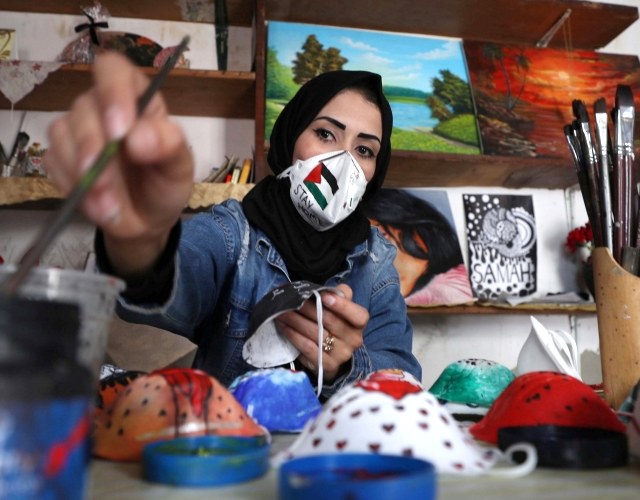 This moment of the COVID pandemic is being exploited by the Israeli authorities to further intensify military actions, electronic and other mechanisms of surveillance, and to create new “facts on the ground” in a process of annexation of Palestinian land that has been normalized by the Trump administration, recent Israeli Knesset decisions, and the “unity deal” being negotiated between Benjamin Netanyahu and Benny Gantz.7 In the last month, major Israeli settlement blocs such as Gush Etzion south of Jerusalem are being expanded, further cutting the territorial contiguity of the West Bank.8 Apartheid road infrastructure for settlers only are being extended in major settlements like Ma’ale Adumim.9 While the Palestinian Authority has imposed lockdowns in the West Bank, the Israeli army has intensified night raids, arrests, home demolitions, and house evictions in the West Bank and Jerusalem.10 In a two week period during the pandemic in March alone, according to Mondoweiss, “Israeli forces injured 200 Palestinians, detained 100, demolished 16 structures.” Israeli violations in the West Bank have intensified meanwhile, with recent news reports that attacks by settlers have risen by 78 per cent with Palestinians being brutally assaulted,11 kidnapped, their olive trees uprooted, and their property spat on by Israeli soldiers and attacked by settler-youths who are under coronavirus quarantine.
This moment of the COVID pandemic is being exploited by the Israeli authorities to further intensify military actions, electronic and other mechanisms of surveillance, and to create new “facts on the ground” in a process of annexation of Palestinian land that has been normalized by the Trump administration, recent Israeli Knesset decisions, and the “unity deal” being negotiated between Benjamin Netanyahu and Benny Gantz.7 In the last month, major Israeli settlement blocs such as Gush Etzion south of Jerusalem are being expanded, further cutting the territorial contiguity of the West Bank.8 Apartheid road infrastructure for settlers only are being extended in major settlements like Ma’ale Adumim.9 While the Palestinian Authority has imposed lockdowns in the West Bank, the Israeli army has intensified night raids, arrests, home demolitions, and house evictions in the West Bank and Jerusalem.10 In a two week period during the pandemic in March alone, according to Mondoweiss, “Israeli forces injured 200 Palestinians, detained 100, demolished 16 structures.” Israeli violations in the West Bank have intensified meanwhile, with recent news reports that attacks by settlers have risen by 78 per cent with Palestinians being brutally assaulted,11 kidnapped, their olive trees uprooted, and their property spat on by Israeli soldiers and attacked by settler-youths who are under coronavirus quarantine.
Palestinians Crossing the Green Line and the Apartheid of Virus Containment
Palestinians who work in Israel and the settlements are particularly vulnerable during the pandemic. Having stripped Palestinians of their land, Israeli colonization has worked to transform them under military rule into dependent, subordinate, and exploitable wage-workers incorporated into the Israeli economy. A systematic policy of de-development suppressed Palestinian industrial development after 1967, and, accompanied by the expropriation of cultivable land and water in the Occupied Territories, forced many Palestinians to work as daily wage labourers in Israel and on the very settlements built on their confiscated lands. This policy remains in place today. Given the high levels of unemployment as a result of Israel’s strangulation of their economy, Palestinians now working in Israel and the settlements are estimated to number over 133,000,12 while their wages support a population of over half a million.13
Even before the pandemic, these thousands of workers were subject to multiple tools of racial discrimination by the Israeli authorities. These include subjection to the checkpoints’ permits system, which is a primary tool of blackmail to politically discipline Palestinians and force collaboration; inhumane conditions in the checkpoints as thousands cross in the early morning hours; humiliation and harassment by soldiers; and discrimination in law and exploitation in practice by Israeli employers. Palestinian workers have minimal to no legal protections, are paid far less than their Jewish Israeli co-workers, without the benefits of health insurance, and yet they are forced to pay social security contributions and union fees to the Israeli labour syndicate Histadrut without representation. They are exploited by Israeli and Palestinian intermediaries – mafias who force them to pay exorbitant fees (at over $800 (US) monthly) to acquire black market permits to simply cross the Green Line but without any guarantee of actual employment.
The Israelis have been lauded for their “military style” effectiveness in response to COVID, tightening internal lockdowns. However, in order to keep key sectors of the Israeli economy running in the midst of the pandemic, which stood to lose $1.8-billion a month from the cessation of construction alone,14 the Israeli government allowed continued entry of Palestinian workers into Israel. In doing so, Israeli authorities have used the pandemic to intensify surveillance and repression of these workers. Palestinians who require permits to stay in Israel are now “advised” to download a smartphone app called “Al Munasiq” (“The Coordinator”) which allows the Israeli military to track users’ location, and access their personal files as well as the phone’s camera.
The frontiers of Israeli apartheid not only segregate Palestinians from Jewish Israelis, but also the Palestinian bodies themselves. Israel has privileged able-bodied young Palestinian workers to the exclusion of older ones. On March 11, the Israeli authorities announced new regulations barring Palestinian workers over 50 years of age from crossing effective March 12; On March 17, they announced that effective March 18, those Palestinian workers under 50 were obliged to remain in Israel for a one- to two-month period if they wished to continue employment. It is estimated that between forty and fifty thousand Palestinian workers entered Israel in this scramble. However, on March 25, the Palestinian Prime Minister issued a call for Palestinian workers to return to the West Bank following public outcries over their racist and inhumane treatment. Workers are being forced to live in squalid conditions at their places of work in Israel, which are reportedly “not appropriate for humans” while Israel has failed to test workers for coronavirus. Rather than being cared for, workers who develop symptoms or who have been suspected of being sick have been have been dumped back into the West Bank at checkpoints along the Green Line, “like trash,” often without coordination with Palestinian authorities.
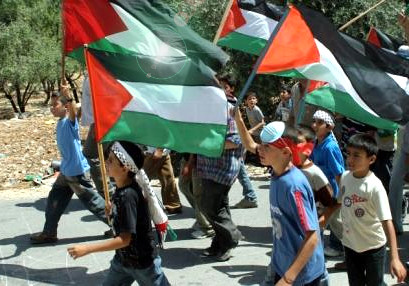 A potential uncontrolled spread of coronavirus is feared in the West Bank due to the return of over 40,000 workers after the start of Passover and Ramadan. Moreover, the Israeli government has announced that workers who return to the West Bank during this holiday period will be denied entry back into Israel for employment.15 These workers are highly reliant on their wages in Israel as the only source of income and many still owe debts for the permits they purchased to cross the checkpoints.16 Meanwhile they risk direct exposure to the virus in Israel and are simultaneously unable to access healthcare or testing. Upon their return to the West Bank, these workers are still unable to get tested and face backlash with the recent surge of cases.17
A potential uncontrolled spread of coronavirus is feared in the West Bank due to the return of over 40,000 workers after the start of Passover and Ramadan. Moreover, the Israeli government has announced that workers who return to the West Bank during this holiday period will be denied entry back into Israel for employment.15 These workers are highly reliant on their wages in Israel as the only source of income and many still owe debts for the permits they purchased to cross the checkpoints.16 Meanwhile they risk direct exposure to the virus in Israel and are simultaneously unable to access healthcare or testing. Upon their return to the West Bank, these workers are still unable to get tested and face backlash with the recent surge of cases.17
International Labour Solidarity with Palestinians
This moment of crisis offers a historical opportunity to galvanize solidarity movements with Palestinians and other indigenous people and workers around the world. On April 7, a coalition of Palestinian human rights and civil society organizations issued a new call for international solidarity, demanding that Israel allow access to critical civilian health infrastructure, and release Palestinian political prisoners who have been illegally detained and risk exposure to the virus in Israeli prisons. They have also called for the siege of Gaza to be broken with another Freedom Flotilla, and the escalation of the Boycott, Divestment, and Sanctions campaign.18 Coalitions between civil society organizations have issued a Palestinian Civil Society Joint Statement on COVID. Regular systems of reporting have been established by Al-Haq, the long-time legal advocacy group, to monitor the violence to which Palestinians are being subject in the current pandemic, as well as, on basic conditions of water, health, and medical equipment. Most recently on April 14, 2020, a coalition of human rights organizations issued an urgent appeal to the United Nations Special Procedures. They are calling on the UN to denounce Israel’s systematic practices of racial discrimination and exploitation of Palestinian labour, who are forced to risk their health and life under this crisis. Beyond COVID, initiatives to bring Israel to trial on war crimes in the International Criminal Court have direct bearing on current realities.
One of the questions for the international left is how to urgently mobilize support for the campaigns and coalitions being advanced in/from Palestine. Nakba Day on May 15, 2020 will mark the 72nd year of the unconscionable injustices against which the Palestinian people continue to struggle. It is imperative for left forces to link the specific conditions of colonialism and apartheid facing Palestinians with neoliberal attacks on working classes the world over. The struggle of Palestinian workers cannot be interpreted only as a national struggle for self-determination. COVID-19 comes at a time of intensified capitalist crisis, in which the working class has been under systematic attack from decades of neoliberalism, commodification of most areas of social life, dispossession of land base, and indebtedness. Palestinian workers are fully incorporated in these processes of global finance capital, in the particular context of the ongoing Israeli settler-colonial rule. Thus, struggle of workers in Palestine with COVID-19 needs to be understood as a struggle also against capitalism. Calls for unified global action by labour have been made by the International Labour Network of Solidarity and Struggle, among others, demanding solidarity with Palestinians and all colonized people in this pandemic.19 We need to urgently act in solidarity, understood, in the words of Mozambican revolutionary Samora Machel, not as “an act of charity but an act of unity between allies fighting on different terrains toward the same objectives.”20 •
Endnotes
- Mahmoud Zawahreh, Palestinian activist, in “Coronavirus: Israeli settlers exploit lockdown to annex Palestinian land.”
- Joint statement, “Israeli Apartheid Undermines Palestinian Right to Health Amidst COVID-19 Pandemic,” 7 April 2020; World Health Organization, “Overcoming barriers to healthcare access in the West Bank with mobile clinics.”
- Nir Hasson, “After Weeks of Warning, Coronavirus Spreading Among Palestinians in East Jerusalem,” 14 April 2020; J. Ahmad, “Falling between the cracks in Jerusalem,” 30 March 2020.
- Daoud Kuttab, “Palestinian minister claims Israeli police physically abused him,” 4 April 2020; Dr. Ashrawi, “Israel deliberately undermining Palestinian efforts to combat COVID19 pandemic,” 3 April 2020.
- B’Tselem, “During the Coronavirus crisis, Israel confiscates tents designated for clinic in the Northern West Bank,” 26 March 2020; The New Arab, “Coronavirus under occupation: Israeli forces demolish emergency health clinic for Palestinians,” 27 March 2020.
- Adri Nieuwhof, “Israeli settlers use six times more water than Palestinians,” 8 April 2013; Al-Haq, “On World Water Day, Al-Haq Recalls Israeli Water-Apartheid Amidst a Global Pandemic,” 23 March 2020.
- Chaim Levinson, Jonathan Lis, “Netanyahu, Gantz Agree on West Bank Annexation Proposal as Unity Deal Nears,” 6 April 2020; Yaser Alashqar, “From Covid-19 to the ‘Deal of the Century’ – Palestine and international law,” 8 April 2020.
- “Israel exploiting coronavirus for settlement expansion,” 12 March 2020; Akram Al-Waara, “Coronavirus: Israeli settlers exploit lockdown to annex Palestinian land,” 27 March 2020.
- Haaretz editorial, “Israel’s Latest Highway to Apartheid,” 11 March 2020; for background: “The E1 plan and its implications for human rights in the West Bank,” 27 Nov. 2013.
- Ali Abunimah, “Israel attacks Palestinians as they fight COVID-19,” 31 March 2020; “Israel demolishes Palestinian homes amid coronavirus crisis,” 28 March 2020; “Since coronavirus pandemic outbreak: Israel kidnapped 292 Palestinian,” 3 April 2020.
- Tamara Nassar, “Settler attacks rise by 78 percent amid pandemic,” 11 April 2020; “Jewish Settlers Attack Palestinian Family Homes in Hebron,” 6 April 2020.
- Estimates includes West Bank and Gaza, “The Labour Force Survey Results 2019,” Palestinian Central Bureau of Statistics.
- In a recent interview with Al-Jazeera, director of the International Labour Organization (ILO) in Jerusalem estimated these figures at 200,000 Palestinian workers, implying their wages support a population of over one million (assuming each worker supports at least five dependents) (“Palestinian labourers fear loss of income as well as coronavirus”).
- On March 6, 2020, the Israeli financial newspaper, Calcalist, estimated significant losses at $1.8-billion monthly for the construction sector if Palestinian workers were not allowed in, see Ahmad Melhem, “Israel tightens grip on Palestinian workers to limit COVID-19,” 20 March 2020; Adam Rasgon, “PA urges Palestinian workers to return to West Bank as Israel’s virus cases grow,” 25 March 2020.
- Jack Khoury and Hagar Shezaf, “Palestinians fear coronavirus surge as workers return from Israel over passover,” 4 April 2020; Rania Zabaneh, “Palestinians brace coronavirus outbreak workers return,” 6 April 2020.
- Zeina Amro, “A Glimpse into the COVID-19 Crisis in the Context of Palestine,” 2 April 2020; Alex Lederman, “Palestinian labourers fear loss of income as well as coronavirus,” 28 March 2020.
- Palestinians brace for influx of workers as Covid-19 cases continue to rise; see video.
- Al-Haq, “In the face of potential COVID-19 outbreak in the Gaza Strip, Israel is obliged to take measures to save lives,” 7 April 2020; Palestinian Human Rights Organizations Council press release, “PHROC Calls the International Community & ICRC for an Urgent Intervention,” 23 March 2020; Samidoun, “Virtual call to action for Palestine: COVID-19, Gaza and the Struggle for Justice,” 16 March 2020; also see, internationally: Michael Arria, “Warren, Van Hollen lead Senators in demanding Trump admin send aid to Palestine amid COVID-19 crisis,” 27 March 2020; IfNotNow, “Demand Israel Protect Palestinians in Gaza.”
- Solidaires (CM), “Coronavirus: colonialism worsens the situation too,” 1 April 2020; Solidaires (CM), “Palestine in the Time of Covid-19,” 9 April 2020.
- Salim Vally, “From South Africa to Palestine, Lessons for the New Anti‐Apartheid Movement,” Left Turn, Notes from the Global Intifada, April 2008.


